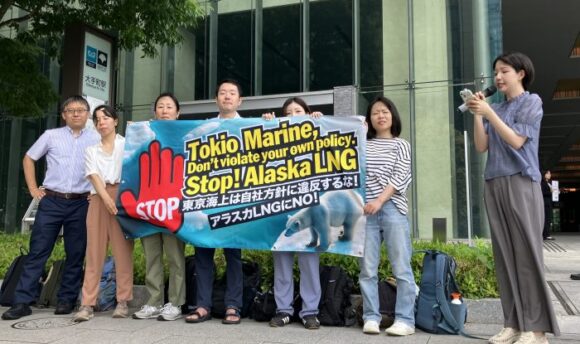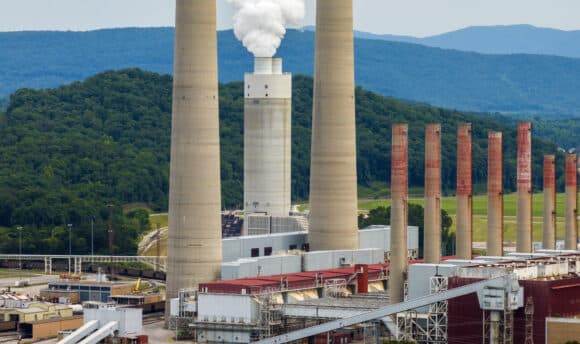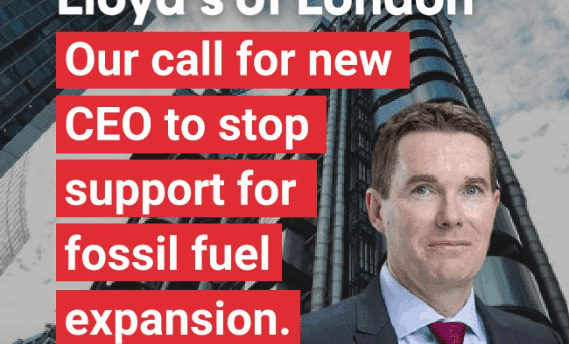A tool to detect greenwashing practices in the finance sector
Reclaim Finance and more than 15 NGOs launch the “Oil and Gas Policy Tracker” (OGPT). The tool is the first of its kind: it assesses in great detail the oil and gas exclusion policies (or lack thereof) of the 150 biggest financial institutions worldwide. The Oil and Gas Policy Tracker reveals that despite many of the banks, insurers and investors pledging to tackle climate change by restricting support for the oil and gas industry, their policies are too flawed to align their business with their net zero 1.5°C targets. Reclaim Finance and partners call on financial institutions that do not want to be exposed as greenwashers to adopt robust oil and gas policies with clear red lines against oil and gas expansion.
The OGPT scores the oil and gas exclusion policies of top global financial institutions (60 banks, 30 insurers and 60 investors), looking at three key indicators: restrictions on new oil and gas projects, restrictions on companies developing new oil and gas projects, and strategies to phase out oil and gas. The 30 insurers in the OGPT include AIG, Allianz, Aviva, AXA, AXIS Capital, Berkshire Hathaway, Chubb, Convex, Everest Re, Generali, Hannover Re, Liberty Mutual, Lloyd’s, Mapfre, MS&AD, Munich Re, Ping An, QBE, Samsung FM, SCOR, Sinosure, Sompo, Swiss Re, Talanx-HDI Global, The Hartford, Tokio Marine, Travelers, W.R. Berkley, Zurich.
Currently, less than half of the 150 institutions have implemented oil and gas exclusion policies. The OGPT points to a significant number of the heavyweights in the Glasgow Financial Alliance for Net Zero (GFANZ) which still haven’t implemented an exclusion policy on oil and gas, despite their pledge to align their portfolios with 1.5°C.
The Tracker also points to major flaws in existing policies, hindering efforts to tackle oil and gas expansion, in line with what climate science requires in order to stay below 1.5°C.
- Only nine financial institutions totally exclude support for all new upstream oil and gas projects, although the IEA’s 1.5°C pathway does not include new oil and gas fields. Policies tend to focus on excluding support only for some unconventional oil & gas such as tar sands, Arctic, fracking and/or ultra deep waters.
- Only five financial institutions (partially or totally) restrict support for companies developing new oil and gas projects, despite the critical role played by corporate financing in new oil and gas projects. Most policies focus on restricting direct project support but still enable support at the company level.
More worryingly, close scrutiny reveals that a growing number of financial institutions are making room for major exceptions in the fine print of their policies. For instance:
- Only 14 financial institutions have policies on both conventional and unconventional fossil fuels, while 66 have restrictions limited to one or more unconventional sectors.
- More and more policies create exceptions for companies with “credible transition plans” or “aligned with 1.5°C by 2050”. They hardly ever include clear redlines against oil and gas expansion and 1.5°C carbon budget overshoot.
- Nearly all oil and gas policies include restrictions on the Arctic (54 out of 66). However, the OGPT reveals that these policies are often deeply flaw For instance, no more than eight financial institutions have adopted the Arctic AMAP definition as their exclusion scope.
"The Oil and Gas Policy Tracker is a tool to detect greenwashing practices in the finance sector. It confirms that despite their net zero pledges, many GFANZ members don’t even have an oil and gas policy. And with one glowing exception, French la Banque Postale, those that do have a policy can still support the development of new oil and gas plans. Despite their climate pledges, they are failing the most basic test for any institution aiming to align their portfolio with 1.5°C. And as Putin’s war on Ukraine reveals, they also make the world more unstable while bankrolling future conflicts."
"Insurance companies have warned about climate risks for almost 30 years and would like to see themselves as climate leaders. Such claims have little credibility as long as only six of the 30 biggest fossil fuel insurers have adopted any restrictions on conventional oil and gas, and only three of them rule out any support for new oil and gas expansion projects."
"It’s alarming to see that almost a year after the IEA warned that no new oil and gas fields should be developed, the industry remains on its ruthless expansion course. Over 96% of the companies on our Global Oil and Gas Exit List are still developing new oil and gas assets or exploring for new reserves. The OGPT identifies the financial institutions, which keep on enabling these fossil fuel developers as well as the ones that are ahead of the curve. This work will massively increase the right kind of competition among financial institutions. It constitutes a key component in the toolbox for driving change in the industry!"
"The Oil and Gas Policy Tracker confirms what the Banking on Climate Chaos report numbers reveal year after year: the loopholes in banks’ policies are too big to stop billions from flowing to the oil and gas industry’s expansion plans. We can only hope the forthcoming 2022 edition will serve as a wake up call: banks must address those loopholes and cut off the taps for companies that are still developing new oil and gas projects."
Reclaim Finance plans to gradually expand the scope of the Oil and Gas Policy Tracker and include 200 more international financial institutions. By the United Nations General Assembly in September, the Oil and Gas Policy Tracker, similarly to the Coal Policy Tool, will score the oil and gas policies of all significant members of the GFANZ.



